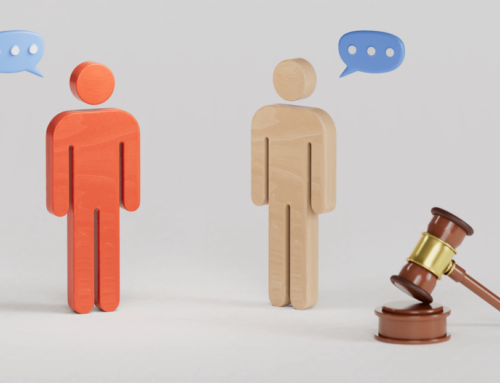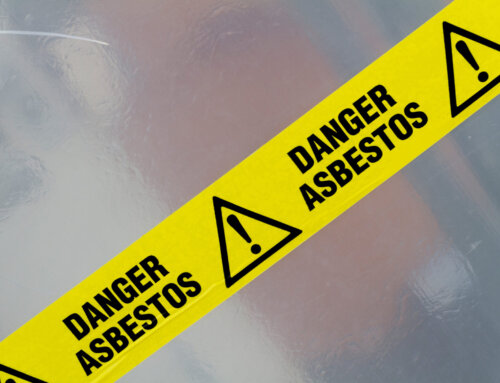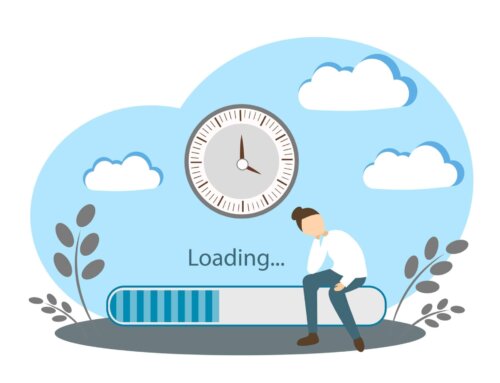For most people, the term ‘brain injury compensation‘ conjures up images of serious injury claims that lead to significant compensation being awarded to those who have suffered catastrophic head injuries sustained in car accidents, accidents at work or as a result of medical negligence.
Some brain injury claims result in compensation awards running into the millions of pounds. Statistics reveal that 433 people were admitted to hospital every day for treatment to head injuries in 2019-2020. Of those, some will have sadly been diagnosed with serious brain damage.
Headway, the Brain Injury Association, have produced statistics that indicate that 95% of those patients reporting to hospital with head injuries will only suffer mild symptoms, e.g., a brief period of unconsciousness or feeling sick and dizzy for a short while.
What of the remaining 5%? They are the ones left with either moderate head injury or severe brain injury.
Headway estimates that there are between 10,000 and 20,000 severe traumatic brain injuries yearly. A violent blow to the head most commonly causes traumatic brain injury (TBI).
Severe Traumatic Brain Injury
Severe traumatic brain injuries result in a loss of consciousness of more than 6 hours and a Glasgow Coma Scale of 3 to 8. The Glasgow Coma Scale is the most common method of describing the level of consciousness in a person who has suffered a traumatic brain injury.
When brain injury claims settle for over £1 million, the person making a claim has suffered very severe brain damage.
By ‘very severe’, we mean that the victim’s brain damage is so acute that they are left with serious physical and mental disabilities. The injured person will be required to adapt to a new way of living. The effects of severe brain injuries are also felt acutely by the victims’ families, and their lives will change drastically.
People often mistakenly think that compensation at this level is paid only for the injury the victim has suffered, but that’s not the case. There will also usually be significant claims for special damages, such as loss of earnings and other items (see below).
At the very severe level of brain damage, the amount of compensation (also known as general damages) for PSLA (Pain, Suffering and Loss of Amenity) will be in a bracket somewhere between:
Very Severe Brain Damage
£282,010 to £403,990. (Figures according to Judicial College Guidelines 16th Edition, 2022).
Moderately Severe Brain Damage
£219,070 to £282,010 (Figures according to Judicial College Guidelines 16th Edition, 2002).
An injured person in this category will still have a severe disability and a substantial requirement for care and dependence on others.
How do some brain damage claims end up settling for sums of £1 million or more?
When someone suffers a traumatic brain injury as severe as the type already mentioned above, then on top of the claim for injury compensation (PSLA), there will be several other types of claim for compensation.
Brain injury victims who have been severely injured will need full-time care. They may also need adaptations to their home and require specialist equipment and facilities.
A typical brain damage claim, where the injuries are very severe, with significantly reduced mental capacity, will include claims for damages for some or more of the following:
- Pain, suffering and loss of amenity
- Loss of earnings from the date of the accident to the date of settlement
- Private medical expenses, including those for recommended therapists
- Loss of future earnings
- Value of a partner or family member becoming a full-time carer (including their loss of earnings from their former career)
- Cost of future professional care
- Cost of specialist aids and equipment
- The costs of adapting a home to the injured persons specific needs. In some circumstances, the cost of purchasing a new home may be claimed.
- Travel expenses
- Recompense for any items that were damaged in the accident (particularly appropriate in road traffic accident claims)
The media can give the impression that multi-million pound compensation settlements are a kind of ‘windfall’. Some news outlets even use the term ‘winning compensation’ when talking about compensation being paid to people who have suffered life-altering accidents which massively reduce their quality of life.
Severe brain injuries are life-threatening, and even if the injured person survives, the catastrophic nature of the injuries invariably leads to long periods of hospitalisation, extensive, ongoing rehabilitation and varying degrees of day to day care, for the rest of the person’s life.
As much as is possible in claims of this nature, compensation is intended to put the person to whom it is paid back into the position they were in before the accident. Such large damages settlements are made because they reflect the facts that:
- No amount of compensation can ever go anywhere near putting such badly injured people back into the position they were in before the accident.
- When someone has suffered a brain injury of the utmost severity, they are likely to need 24/7, around-the-clock care for the rest of their lives. The cost of providing that care and all the additional facilities required is hugely expensive.
Moderate Traumatic Brain Injury
Moderate traumatic brain injuries can be defined as brain injuries where the injured person is unconscious for between 30 minutes and 24 hours after the incident that caused trauma. Applying the Glasgow Coma Scale, they typically score 9-12.
Whilst persons with brain injuries in this category may be unable to communicate, suffer partial paralysis and have impaired learning and problem solving skills (cognitive skills), they have a better chance of making some form of recovery from their injuries than those who have severe traumatic brain injuries. They are also likely to benefit more from rehabilitation.
Judicial Guidelines compensation scales for moderately severe brain damage are:
£43,060 to £219,070 (Figures according to Judicial College Guidelines 16th Edition).
Within the category of moderate brain damage, the degree of severity of injury is wide. Hence the reason the bracket of damages to be applied is equally broad.
At the most severe level of injury within this category will be those:
- whose intellect is moderately to severely damaged,
- have undergone personality change,
- whose sight, sound or speech sense is severely impaired,
- are at significant risk of epilepsy occurring
- have no prospect of employment
At the least severe level of injury that comes within this category will be those for whom:
- their memory and ability to concentrate will is affected
- their ability to carry out any work will is reduced
- there is a slight risk of epilepsy developing
- any dependence on others is minimal
Mild Traumatic Brain Injury
A mild traumatic brain injury is defined as such, if loss of consciousness following a head injury lasts for 30 minutes or less.
Is concussion a form of brain damage?
Concussion is another name for mild-traumatic brain injury. It’s referred to as being a ‘traumatic injury’, because it is caused by a blow to the head.
Concussion can be caused by:
- Accidents at work
- Road traffic accidents
- Slip, trip and fall on the public highway
- Criminal assault
Although concussion is usually associated with the head being struck by another object, it can also be caused if the head is shaken back and forth. Concussion caused by the whiplash effect that takes place when two motor vehicles collide, is an example of this.
Concussion is a temporary disturbance of the brain’s function.
Symptoms include:
- Dizziness
- Headaches
- Tiredness
- Problems sleeping
- Being oversensitive to light
- Difficulty balancing
- Struggling with concentration
- Forgetting to do things
- Unable to process information
- Low mood
- Irritability
- Feeling upset for no apparent reason
How quickly do the symptoms of concussion appear?
They can appear straightaway, or it may take a few days or, in some cases, weeks later before they do so. It’s for this reason that professional sportspersons who suffer head injuries whilst playing sports often have to abide by a concussion protocol, which dictates when they can resume playing.
If a person has only mild symptoms such as a headache or is feeling dizzy or sick, then it’s probable that they’ve suffered a mild head injury and not concussion.
Should symptoms persist, particularly if these are accompanied by a change in behaviour, then a visit to the accident and emergency department of a local hospital will be necessary to check whether concussion or something more severe is the cause.
If concussion is present, after a few days’ rest, most people will have completed a full recovery.
One of the dangers of mild TBIs is that their symptoms – headaches, difficulty thinking, mood swings – are often disregarded as being part and parcel of everyday life when, for instance, a person is overworked or suffering stress. It is easy for the injured person to carry on with their day-to-day life as normal.
When this happens, complications can arise, characterised by symptoms such as persistent headaches, fatigue and mental impairment. The condition is known as post-concussion syndrome.This is known as ‘post-concussion syndrome’.
One of the longer-lasting effects of post-concussion syndrome can be depression, problems with concentration and loss of memory. Whilst most people recover within a few weeks, symptoms can last for months or even as much as a year for some people.
Judicial guidelines for mild traumatic brain injury compensation for pain, suffering and loss of amenity are as follows:
Minor Brain Damage (the injured person has made a good recovery and can return to normal work and social life)
(Figures according to Judicial College Guidelines 16th Edition, 2022).
£15,320 to £43,060
Minor brain or head injury (brain damage will have been minimal)
£2,210 to £12,770
There’s no such thing as an insignificant brain injury
When someone suffers a traumatic head injury as a result of an accident, it’s a fine line as to whether they suffer the disastrous consequences of a serious brain injury or whether they get concussion. The severity of the external force often plays a part in determining which it will be, but not always.
As personal injury solicitors, helping the family of a severely brain damaged accident victim to start on the long road to bringing a successful brain damage injury compensation claim can be one of the most challenging aspects of our work.
A catastrophic brain injury claim isn’t just about the money that we can recover for the client, albeit that is important. Our job is to be there throughout the life of the claim and, thereafter, for our clients and their families.
At the other end of the scale, though, its’ also important not to get drawn into thinking that mild traumatic brain injuries are insignificant matters in themselves.
Watch our brain injury advice video:
Brain injury compensation claims are complex, serious injury claims requiring the help and assistance of specialist solicitors to ensure the claim is dealt with correctly. At Mooneerams Solicitors, we are fortunate to have several highly experienced brain injury solicitors who work together as a team under the leadership of our director, Angus Fergusson.
If you want to discuss any aspects of making a brain injury claim in confidence, call Mooneerams Solicitors on 029 2199 1927 and ask to speak with Angus Fergusson. Alternatively, you can contact us online by sending your contact details to us to request a call back from Angus.
We can usually handle brain damage claims and head injury compensation claims using a Conditional Fee Agreement, also known as a No Win, No Fee agreement.
This guide was last updated on 17th October 2022.











